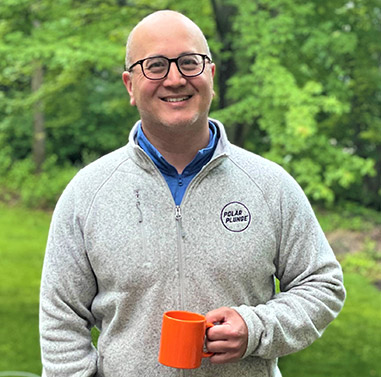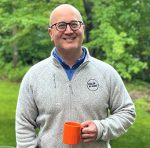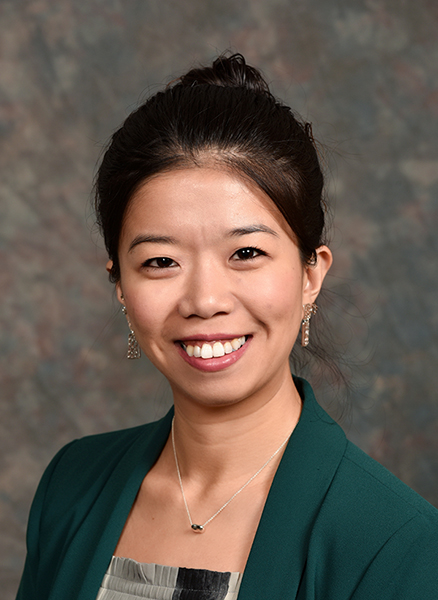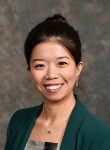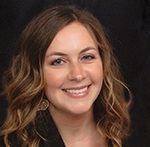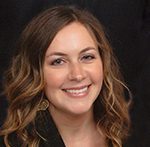The Women in Food Safety Group had the pleasure of speaking with Steve Min, Executive Vice President of R&D and Quality Assurance at International Dairy Queen (IDQ) about his career path as well as opportunities and advice for young female professionals who are interested in pursuing and/or expanding their careers in food safety.
Min, a secondgeneration Korean American, holds a bachelor’s degree in Food Science and Technology and a master’s degree and Ph.D. in Food, Agricultural and Biological Engineering from Ohio State University. His career has spanned food safety, R&D and quality management across multiple areas of the food supply chain. At IDQ, Min is responsible for ensuring global regulatory compliance, product development, and food safety and quality in more than 20 countries.
His personal journey in the food industry began at the age of 14 working in food concessions, food service and food catering. However, food science has run through his veins since birth as he is the son of a well-recognized food science professor. Min launched his professional career at Borden Foods and Mattson. He progressed to a management position at Battelle, where he focused on probabilistic and quantitative risk management, then a leadership position at Wendy’s before joining IDQ.
Do you have any advice to those who are pursuing a career in R&D or FSQA?
Min: Try both. These two areas are tied to one another. Quality and safety are built in the development and specification process and further developed through the commercialization process. Understanding—and learning about—mitigation of food safety risk at the manufacturing and food service/end user level is imperative. I believe exploring both areas at early career stages is very valuable to help become well rounded and define a career path.
What motivated you to focus your career on food safety?
Min: The combination of detailed thinking (risk analysis) and vision (risk mitigation) as well as the opportunity to solve problems piqued my interest. I enjoyed the analytical work during my college years. During grad. school, I focused my work on nonthermal technologies, such as Pulsed Electric Field processing, to inactivate organisms causing foodborne illnesses.
My engineering background helped me better understand the manufacturing process, while applying risk-based and science-based approaches to product design, quality and food safety.
Take part in three days of food safety education and networking at the Food Safety Tech Hazards Conference + CFI Think Tank, April 3-5 in Columbus, Ohio.
From the business perspective, understanding the importance of food safety to ensure companies are not negatively impacted is imperative. It also is important to recognize that safety is a continuous process that requires coordination with other teams to achieve customer satisfaction.
What do you like most about your job?
Min: Professionally, it allows me to interact and build relationships with people and share a risk-based culture. I take professional pride in knowing that our customers are getting safe food. Personally, I enjoy learning, which always is achieved by tackling issues and solving problems. The technical aspect of my career is fun, but that is only one aspect of the business. Success only is achievable through collaboration.
What are some of the obstacles or challenges you face as a food safety professional?
Min: Throughout my career, I have faced challenges and I enjoy being challenged. It’s an opportunity to learn from other departments or pillars of the food industry, understand the challenges they are experiencing and define the work needed to solve a problem. This helps me stick to my beliefs and responsibilities during challenging times. Building relationships and your own credibility is extremely helpful, and this requires one to learn how to respectively disagree with and learn from people while effectively communicating the importance of food safety.
What have you learned by working with women during your career journey?
Min: I have worked with outstanding female employees and leaders. Inclusion is something natural and important to me as I saw what my father, a Korean immigrant, experienced during his life.
Fundamentally, everyone brings strengths to work and I continue to learn about others’ strengths and how to best empower teammates to reach their potential. I’m putting more focus on understanding the background and the experience of a colleague or a new potential employee. I am learning to focus on understanding where and how the employee wants to grow and I try to help them break barriers or guide them on next steps to fulfill their career aspirations. To do this, I focus on the feedback I receive as a manager and try to be a better partner, as part of my own continuous development. I’m on an ongoing learning journey to leverage situational leadership and empathy in a way that allows all teammates to grow, find satisfaction and help IDQ achieve its mission and vision.
What is the best advice you received as a young professional?
Min: There are three keys I learned from previous managers and mentors that guided me through a lot of challenges. I remain grateful to those who have helped me learn. They are:
- Build relationships in a time of calm and leverage them in a time of crisis.
- Seek and gather facts from different perspectives and assess them prior to making a final decision. There are often many sides of the story and details can be important but sometimes overlooked.
- “Stay on the side of the angels.” It’s all about doing what’s right. Doing what we think is right will protect people and the business.
I believe considering these three things is fundamental, especially when you work in a fast-paced environment.
If you could turn the clock back to the start of your career, what would you say to your younger self?
Steve Min: Put more focus on networking and relationship building. Continue to help others, which ultimately helps all of us. Put your fears aside and take some risks. Learn more about business. Exercise more and spend more time with family.
What advice would you offer to young women, students and early-career professionals seeking to become leaders in food safety?
Min: Starting a career path is an important decision. Research the entire scope of options that are available and talk to people that are in these roles, both new and tenured employees. I’ve never come across someone in our industry that hasn’t been willing to share their experiences with another, so just reach out. From there, consider what motivates you.
When you are starting out, you may need to switch jobs. This can be challenging but it may help you learn, find passion and carve your path. If you can explore both R&D and food safety/QA earlier in your career, it may help you become a well-rounded food professional and enable you to think about food safety more holistically.
Soft skills are especially important for career advancement, so learn to develop them as early as possible, specifically collaboration, business acumen, communication, and cross-functional leadership. Try always to put yourself in other people’s shoes to develop these soft skills. Ask for help, be bold, and don’t shy away from a challenge.
What do you hope to see in the next three to five years in terms of development and mentoring of women in the industry?
Min: Right now, women are a tremendous part of the industry, and we have some wonderful women leaders. When I conduct interviews, I see a pipeline of capable and intelligent women who have strong career aspirations. I strive for continued growth of younger generations within the company and industry and help develop them to fit key roles in the future.
What advice do you have for those working towards a position in the executive team?
Min: Develop your soft skills and find opportunities to display the quality of your work, your capabilities, and your leadership skills. Set your own vision and goals and look for strategic projects that can help you achieve those goals. Be bold, put yourself out there, and demonstrate your abilities. This requires stretching your comfort zone, raising your hand and seeking stretch opportunities. It is often important to take initiative to get promoted. The key piece of this is strategic thinking and having a vision. When you have a goal, you can assess the situation, and then work backwards and cross-functionally to complete projects and achieve priorities.
As a senior leader for a global team, do you have any suggestions on increasing diversity in the food industry?
Min: Work with HR to continue to widen recruiting circles. Be deliberate in learning and having conversations about diversity and inclusion. If travel is part of your job, it is a great opportunity to learn from people who have varying cultures and backgrounds. It’s important to build more diverse relationships and help others make connections. Inclusion is so important and learning and practicing day-to-day inclusivity will drive positive change. Invest in relationships, teach others and keep learning. Consider leaning into or leading opportunities that come your way in this space.

